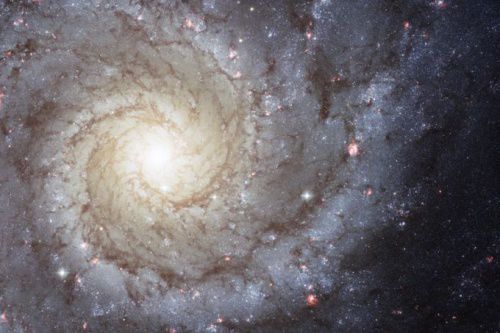Brother Guy Consolmagno, S.J. has spent more than 20 years — the majority of his life as a Jesuit — as an astronomer and planetary scientist at the Vatican Observatory. Now he’s taking the helm as its director. “I honestly did not expect the job, I completely didn’t, and I was surprised that most of the people in the observatory were telling me they were supporting me to be the new director,” Br. Consolmagno told CNA Sept. 18. He added that he’s also humbled to take on the position, “because there have been so many fabulous scientists and of course Jesuits who have had the post ahead of me.” But the surprise, he said, is a reminder that these things are always in God’s hands. Br. Consolmagno is an American research astronomer and planetary scientist at the Vatican Observatory, an astronomical research and educational institution supported by the Holy See, which is located near the Italian town of Castel Gandolfo. Having received a master’s degree from the Massachusetts Institute of Technology and a Ph.D. in planetary science at the University of Arizona's Lunar and Planetary Laboratory, the religious brother entered the Society of Jesus in 1989. He served as the Vatican Meteorite collection before his appointment as director of the observatory, and will be replacing the former director, Fr. José Gabriel Funes, S.J. The Vatican announced Br. Consolmagno’s appointment in a Sept. 18 communique. It coincided with the close of a 4-day Observatory seminar, and which culminated in a private audience between Pope Francis and the nearly 30 seminar participants. In addition to his long tenure at the observatory, Br. Consolmagno also co-authored a book earlier this year with Fr. Paul Mueller, who also works at the observatory, titled “Would you Baptize and Extraterrestrial?” He said that after spending the majority of his life after formation working at the observatory, “it’s the one place I know really well, and it means I have a great knowledge of it and a great love of it, and I want to do everything I can to make it continue in all of the good things that it’s been doing.” Given his background as an active scientist before entering the Jesuits, the religious brother said that since starting his work in the Vatican, numerous doors have opened to him due to the fact that he represents the Church. “There was a tremendous fascination and love of the Church in places you might not expect it,” he said. Br. Consolmagno explained that he already has several ideas for future projects, and is eager to see which will actually pan out. Many previous collaborations the observatory has been famous for will continue, he said, specifically the meetings “that use the good name of the Vatican as a way of drawing attention to important and exciting science that teaches us about the glory of God’s creation.” He also plans to collaborate closely with major institutions throughout the world, and will lean on his background as an MIT graduate and former director of the Division for Planetary Sciences of the American Astronomical Society to try to get his colleagues involved. Turning to the observatory seminar that just concluded, the religious brother noted that a key theme that came out of discussions was the interaction between science and the people who do it. “Science is a very human activity,” he said, explaining that scientists operate out of love for knowledge and truth, something no machine or technology can do. He also expressed an eagerness to implement Pope Francis’ words to members of the observatory during their Friday audience. In his speech, the Pope said “the universe is more than a scientific problem to solve, it's a joyful mystery we contemplate in gladness and praise.” Francis also spoke about the dialogue between science and religion, saying scientific research of the universe is a point where both believers and non-believers can unite, which leads to a better religious understanding of creation. Br. Consolmagno said Pope Francis’ words go to the heart of the observatory’s mission, which is first of all “to do good science,” and then show that science to the world. “I think what is important in both the message of science and the Church is the human aspect of science. That it’s not just done by a bunch of computer nerds, but that it’s done by a bunch of human beings, that may have a love of computers,” he said. Once people get past common clichés that pit science against religion and philosophy, “the beauty that science really is” becomes obvious. “You recognize that it’s a very human activity that speaks to the same instincts that draws to the search for God.”

